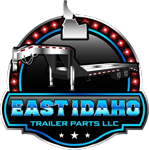Trailer Brake Parts
Shop for the Brake Parts Your Trailer Needs
At East Idaho Trailer Parts, we specialize in providing high-quality trailer brakes for all your needs. Whether you're looking for electric or hydraulic brakes, we have you covered. Your trailer's brakes are key to keeping your drivers and their cargo safe and secure while out on the road. Explore our extensive range of parts and ensure your trailer is equipped with the best. Call us for a quote from East Idaho Trailer Parts.
Get All the Parts for Your Trailer Brakes
East Idaho Trailer Parts has a comprehensive selection of trailer brake system parts in stock, including:
- Actuator
- Brake calipers
- Brake drums or rotors
- Brake fluid
- Brake pads
- Brake shoes
- Breakaway switch
- Magnets
- Wiring harness
Contact us today for all your trailer brake needs throughout southeast Idaho.
High-Quality Brake Replacement Parts
Shop for name-brand replacement brake parts for your trailer, including:
- Brake fluid
- Brake pads
- Brake rotors
- Calipers
- Drums and pads
Call East Idaho Trailer Parts for top-of-the-line replacement parts for your trailer's brake system.
Trailer Brake Parts
East Idaho Trailer Parts stands out in the market for several reasons. We offer better quality parts by cutting out the middleman, ensuring you get the best value. As a supplier, we have most trailer parts in stock, ready for immediate purchase. Our family-owned business has been serving southeast Idaho and the surrounding areas since 2023, bringing over 15 years of experience to the table. We also offer a price match guarantee with proof from local competitors. Call us to place your order.
Contact East Idaho Trailer Parts
For all your trailer brake requirements,
get in touch with East Idaho Trailer Parts. Our team is ready to help you find the perfect parts to keep your equipment, utility, landscaping, or livestock trailer in top condition.


Share On: